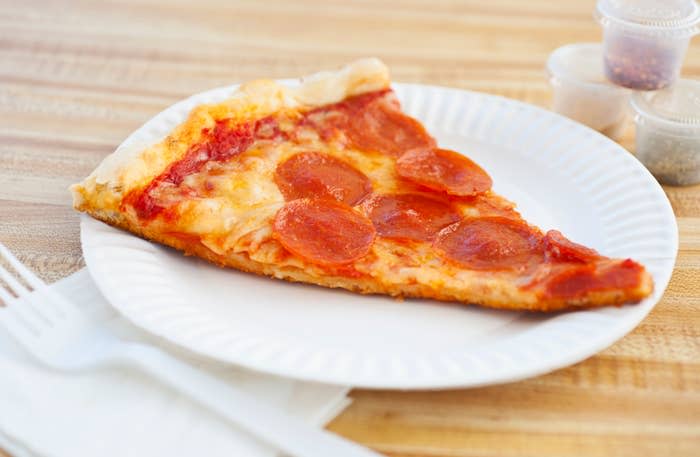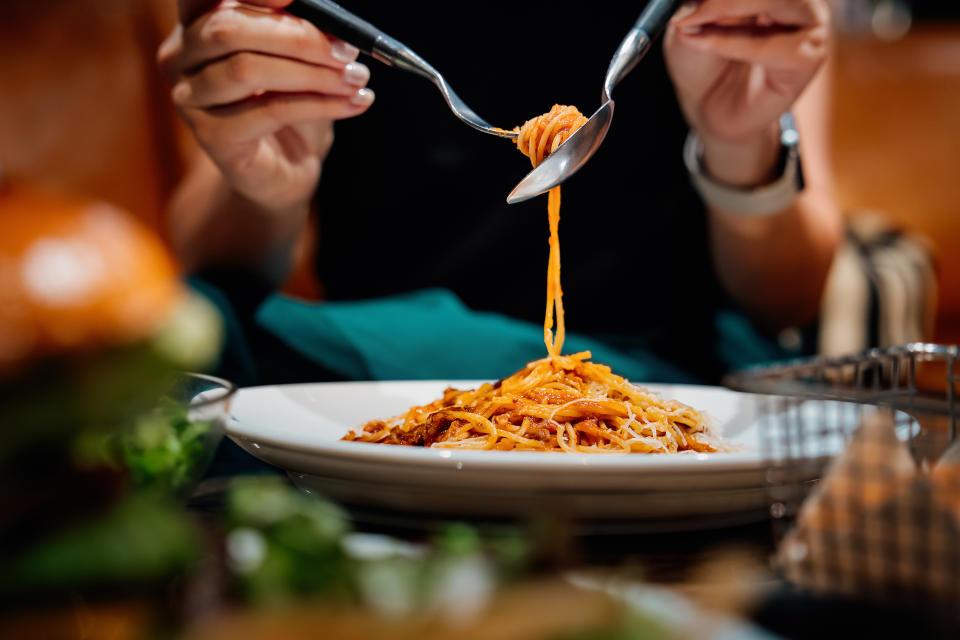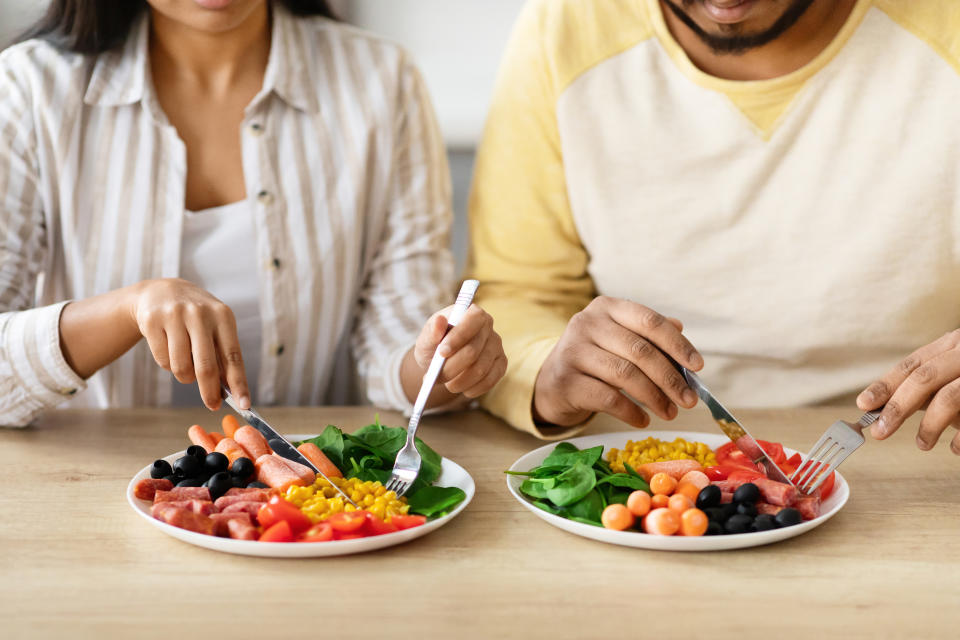“You always have to be healthy.”
A former co-worker used to sarcastically tell me this at every group work meal, whenever I ordered a salad or something else vegetarian, which I was at the time. She always said it in a way that suggested she considered what was on my plate an insult to everything she ate. It wasn’t, of course.
His constant comments about what I ate often led to others in the group laughing and asking me dozens of questions about my meals. Why was I eating this and not that? Was I on a diet? All the questioning and talking about what I ate for lunch made me so self-conscious that I skipped these group lunches whenever possible.
The habit of commenting on what others eat is common, he said. Heather Baker, licensed clinical social worker and founder of Prosperity Eating Disorders and Wellness Center in Herndon, Virginia. “It’s a way to make a connection with another person,” Baker said. “Food is a universal common element that we share, so it’s natural that we have this desire to talk about it.”
But doing so can be harmful, she added.
“Comments about food and eating can be difficult for someone with an eating disorder or who is anxious about eating with other people,” Dr.psychiatrist and director of the Eating Disorders Center at New York-Presbyterian Westchester Behavioral Health, told HuffPost.
Attia said these comments — even if they are well-intentioned — can make some people feel judged, ashamed and embarrassed.
Experts say that when in doubt, it’s best to avoid commenting on what others eat. Here’s why, which statements are especially hurtful, and what to do if you hear these types of comments frequently.
Why you shouldn’t comment on what others eat

The simple answer: you never know what someone else is going through and why they are eating what they are eating, Britney LauraThe lead therapist at eating disorder treatment platform Equip told HuffPost.
Someone might be dealing with or recovering from an eating disorder, for example, and Lauro said that commenting on how they’re eating healthily or that they’re “being good” by eating vegetables can come across as a compliment to their condition.
People may also have health issues where dietary changes are necessary, such as giving up gluten or adopting a plant-based diet, he explained. Melissa Prestonlicensed professional counselor, registered dietitian, and co-founder of Omni Counseling and Nutrition in Denver, Colorado.
Beyond health, people from different cultures may have felt ashamed about what they ate in the past, and comments can cause those feelings to resurface, Preston added.
The bottom line, Baker said, is: “There’s no way to know how someone will interpret a comment about food, even if there are good intentions behind it.”
6 things you should never say to people you’re having dinner with
While Lauro said she believes most comments about what others eat are well-intentioned, she said it’s generally best to avoid making comments about it. Here are some phrases you should never say to people you’re having dinner with:
“I would never eat ___.”
Pointing out how you avoid eating whatever is on someone’s plate, for whatever reason, can make them feel embarrassed, Preston said. It also reinforces diet culture and can feel like you’re comparing your body to theirs, Baker added, especially if you say something like, “I could never eat that much sugar or I’d gain weight.”
“You’re not going to eat all of that, are you?”
Statements like this can make someone feel judged for their food choices, Attia said. Also, avoid commenting on the size or fullness of your plate — “I ate too much,” for example — which can make someone feel self-conscious about what they ate, Baker said.
“Oh, you are being good (or bad) today.”
Avoid labeling foods as “good” or “bad” or “healthy” or “unhealthy,” Lauro said. For example, if you say, “Isn’t it healthy to eat that for breakfast?” this can foster a feeling of shame and be triggering for some people. She emphasized the “all foods fit” concept, meaning there is room for all foods in one’s diet. “Nothing is off limits unless, of course, you have food allergies,” she said.


“Are you on a diet?”
“Never comment on how food will affect someone’s body,” such as gaining or losing weight, Preston said. On the other hand, avoid talking negatively about your appearance in relation to what you eat in the presence of other people, Lauro added.
“I live by a phrase I hear often in my field: ‘My appearance is the least interesting thing about me,’” Lauro said. “There are many other topics we can cover.”
“You look healthy.”
This may sound like a compliment, but Baker said it could be misinterpreted by someone with an eating disorder as implying they’ve gained weight, which can “start a spiral of negative self-talk.”
She said, “Instead, comment on the aspects of the person’s personality or personality that you are noticing the most and are grateful to reconnect with.”
“This looks good.”
This is a complicated question. In some cases, it may be harmless. But Preston said some people, especially those in recovery from eating disorders, don’t want any attention paid to their meals.
“Letting someone know that their food looks delicious could be seen as a message that suggests they are indulging in their food choice or not valuing health in their food choices,” said Attia.
How to respond to what others say about what You Eat


If you hear these types of comments frequently and it bothers you, Attia suggested developing a strategy for responding and dealing with the situation. This can vary depending on your relationship with the person and how comfortable you feel addressing the comments head-on.
First, avoid agreeing with the commenter and participating in food labeling or discussing whether or not you should eat it, Preston said. “That’s what people expect in response, comments like, ‘I shouldn’t be eating that.’”
Changing the subject is often the best strategy. When someone says, “That looks really healthy,” say, “Oh, it tastes really good,” Preston suggested. This takes attention away from the health aspect.
Retargeting can also help, Lauro said. When someone mentions something you don’t want to discuss, ask about something completely unrelated, like Beyoncenew country album or other current event.
If you feel comfortable being blunt, Baker said simply, “Can’t we talk about food or our bodies?”
Lauro said to always be kind to yourself, set boundaries, and know your boundaries in terms of what you’re comfortable (and not comfortable) discussing.
If you are experiencing an eating disorder, call or text 988 or chat 988lifeline.org for support. This article was originally published in HuffPost.
































